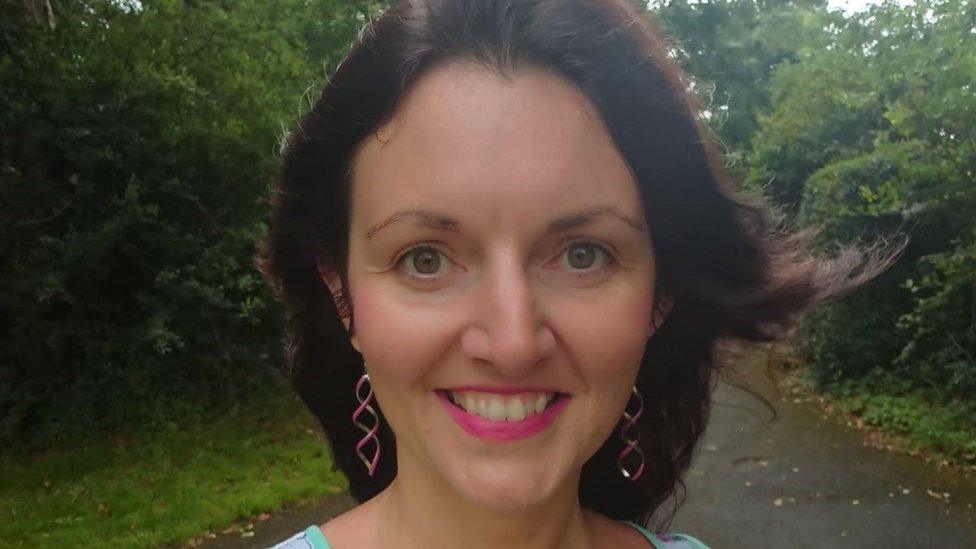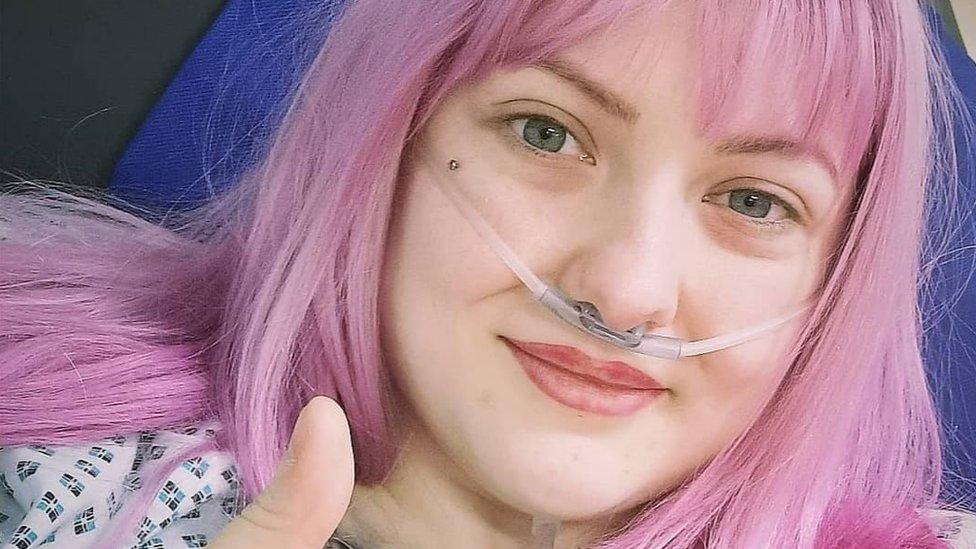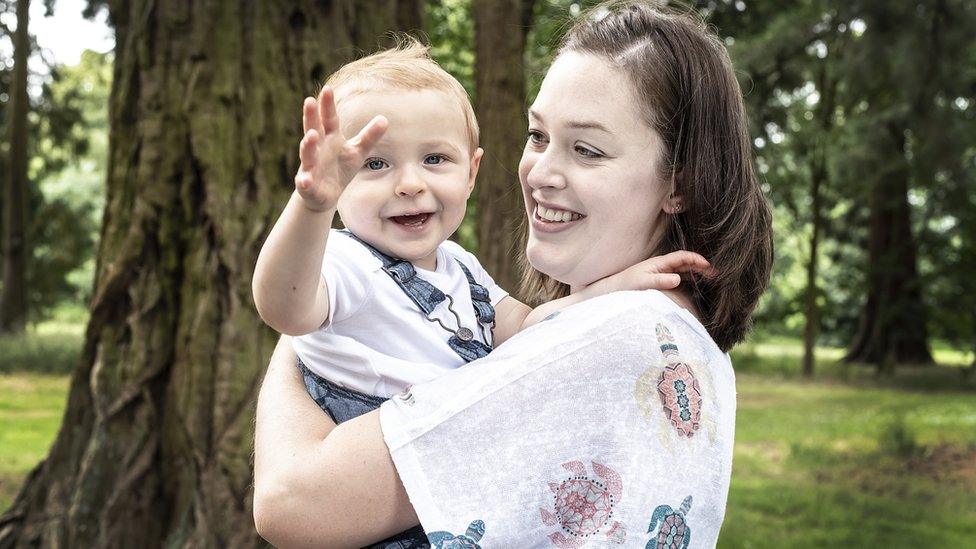Endometriosis: Wales appoints specialist nurse to each health board
- Published

Sarah Matthews says the condition affects her every day
Specialist endometriosis nurses have been appointed for every health board in Wales.
Endometriosis affects one in ten women, can cause serious pain, reduce quality of life and leave some women infertile.
Health Minister Eluned Morgan said she had heard of distressing accounts of misdiagnosis and women living with this condition not being taken seriously.
Endometriosis UK, said it takes on average nine years to be diagnosed in Wales.
"It affects you every day," 37-year old Sarah Matthews said.
Her symptoms started when she was 18 years old, but she was only diagnosed with endometriosis at 25.
Endometriosis causes tissue similar to the lining of the womb to build up in other organs, such as the ovaries or fallopian tubes.
Tissue builds up every month, and the build-up of blood can result in inflammation and scar tissue.
Hidden pain
After years of being put on different birth control pills and being told it was "just period pain", Ms Matthews, a lawyer from Kidwelly, Carmarthenshire, insisted her GP referred her to a gynaecologist.
"I have pain most days. Certain things will trigger it - in my case if I bend and stretch too much, so something as simple as cleaning can aggravate it," she said.
Ms Matthews was bleeding three weeks out of four before her first operation and felt "at a really, really low ebb."
But the condition is still relatively unknown, which can make day to day life difficult.
"There are physical and emotional symptoms, and none of them are seen by anybody," she added.
"Even if you say you're in agony, it's not like you're walking with a limp or you've got an arm in a plaster cast...it's not like other illnesses," Ms Matthews said.
The inflammation of the womb affects her bowel. She has also suffered from sciatica for years; endometriosis can put pressure on the sciatic nerve.
Speeded up diagnosis and treatment
Each health board in Wales now has a dedicated endometriosis nurse who will work with others to ensure best practice.
A website for patients and the new specialist nurses to use has also been developed. It includes a symptom tracker which could become a diagnosis tool for patients and clinicians to speed up diagnosis and treatment.
"Historically women's health services have not had equal treatment and women's voices have been ignored. I am determined that we raise the standards of all women's health services in Wales," the health minister said.
Ms Matthews, too, felt like no one was listening to her.
"I felt heartbroken...You do feel like you're a hypochondriac when you're back and forth to the GP," she said. "I was just told I had heavy periods, but I knew it wasn't normal."
'Emotional toll'
Waiting lists for specialist endometriosis care are long and the nearest specialist centres for women in North Wales are across the border in England, which can result in complicated or slow cross-border referrals, Endometriosis UK said.
Ms Matthews waited nine months for her first laparoscopy when she was 25, and as a result of the COVID-19 pandemic patients are waiting even longer for treatment. She had a second operation aged 33 and is once again waiting to see her consultant.
"There is the worry of infertility. I was told at 25, when I had that first operation, that if I wanted children I should really have them as soon as possible. That's easier said than done if you're not with the right person or not in a relationship," she said.
There is currently no cure for endometriosis. Treatment includes removing endometriosis tissue during a surgical procedure called laparoscopy, which is also used to diagnose the condition.
In very serious cases a hysterectomy, an operation to remove the womb, can be performed.
"When you're on a waiting list, each month you're thinking: 'Am I going to be infertile from waiting so long?'", Ms Matthews said.
The new posts are being funded by a £1m investment from the Welsh Government per year as part of wider plans to improve women's health services.
- Published3 February 2021

- Published19 October 2020

- Published18 August 2020
